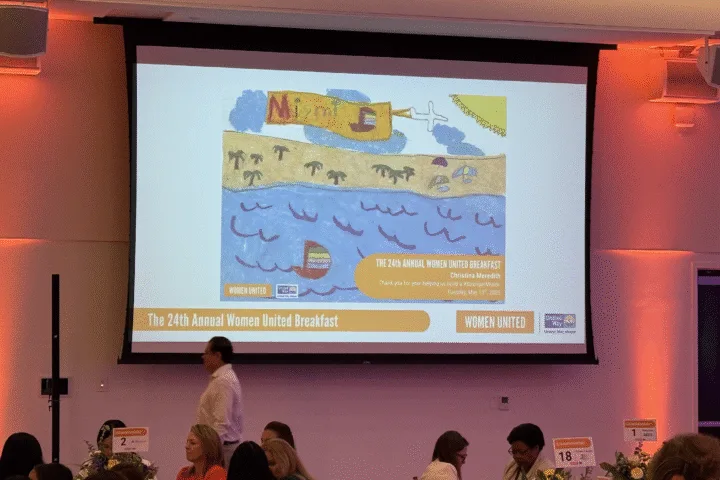For decades, toughness was equated with effective leadership. “Command and control” was the norm, and emotional expression was often seen as unprofessional. Women leaders, in particular, were discouraged from being too soft or too strong, trapped in a narrow space of acceptability.
But the world has changed. Gallup’s Workplace Study shows that emotional intelligence, empathy, and active listening are among the top leadership skills desired by employees. People no longer want managers; they want mentors, advocates, and real human connections.
Radical openheartedness challenges the notion that professionalism requires emotional distance. Instead, it argues that vulnerability and compassion are essential tools of influence in the modern workplace.
What Is Radical Openheartedness?
Melinda French Gates, in her Stanford commencement speech, called for “radical openheartedness.” This is not about being agreeable. It is about leading from a place of emotional depth, authenticity, and care, even when it is hard.
Radical openheartedness includes:
✿ Thank you for reading!
Subscribe to be our bestie, no spam—just good vibes once a month.
- Practicing empathy without losing boundaries
- Listening deeply, even when uncomfortable
- Holding space for grief, change, and difference
- Showing up without armor, especially during conflict
Psychologist Kristin Neff calls this “fierce self-compassion”: the ability to stand strong while staying soft. Leaders who embody this are better equipped to navigate uncertainty, resolve conflict, and inspire trust.
Data Behind Kindness
Harvard Business Review (2022) reported that companies with high psychological safety outperform their peers in innovation, retention, and trust. Amy Edmondson’s research at Harvard found that teams with high trust were more likely to share ideas, own up to mistakes, and take healthy risks.
A workplace culture rooted in openheartedness cultivates long-term engagement. Compassionate leadership is linked to higher retention and morale. A 2021 SHRM report revealed that 57% of employees who felt their manager genuinely cared about them were more likely to stay long-term.
LinkedIn Learning’s 2023 Workplace Learning Report highlights a sharp increase in demand for training on empathy, active listening, and inclusive leadership, clear indicators of a broader cultural shift.
Leading from Within
Radical openheartedness is not performative. It begins with personal work. Leaders must be willing to look inward, examine their conditioning, and process their own emotional wounds.
Self-awareness is the foundation of authentic leadership. A leader who has done their emotional homework creates safer environments because they can regulate their own responses and extend grace to others.
Carol Wiickts, founder of Kindness in Action, emphasizes, “A leader’s emotional state sets the tone for the entire room. When we model presence, we create permission for others to be real.”
This approach to leadership does not mean abandoning authority. It means reimagining authority as mutual respect and shared power.
The Misconception of Softness
There is a lingering myth that kindness is weakness. That if you are too empathetic, you will be taken advantage of, or lose respect. But the opposite is true. True kindness requires courage.
Boundaries are essential in openhearted leadership. Brené Brown calls them “the backbone of compassion.” Without boundaries, kindness becomes martyrdom. With them, it becomes clarity, alignment, and strength.
Radical openheartedness is not about letting people off the hook. It is about holding people accountable with respect. It is about feedback that builds, not breaks.
The ROI of Being Human
Openhearted leadership is not just ethical, it is strategic. When employees feel safe and valued, performance improves. Turnover decreases. Creativity increases.
In emotionally intelligent teams, innovation is more frequent, collaboration is more natural, and conflict resolution is more efficient. Psychological safety enables faster learning cycles and better decision-making.
A Deloitte report (2022) revealed that companies with inclusive and compassionate cultures are twice as likely to meet or exceed financial targets, six times more likely to be innovative and agile, and eight times more likely to achieve better business outcomes.
Openheartedness and DEI
Radical openheartedness is foundational to diversity, equity, and inclusion work. DEI is not only a policy; it is an emotional practice. Leaders must listen to lived experiences without defensiveness. They must understand that identity and emotion are intertwined.
Organizations that truly practice inclusion allow space for discomfort. They value emotional labor and support those who are often asked to carry it. Openheartedness provides the emotional framework for sustaining DEI commitments beyond statements.
Design for Humanity
Workplace design can reflect openhearted values. From flexible schedules and mental health days to trauma-informed communication protocols and quiet spaces, kindness can be built into systems.
Team rituals that center on reflection, gratitude, or storytelling create connection. Inclusive meeting practices, such as round-robin sharing or pausing for reflection, help all voices be heard. Even small practices, like checking in before diving into tasks, cultivate care.
When Crisis Hits
Radical openheartedness is not only for calm days. It matters even more in times of crisis, layoffs, grief, and societal turmoil. Leaders who can hold emotional space during disruption are rare and urgently needed.
In the aftermath of collective trauma, such as a global pandemic, racial violence, or economic uncertainty, organizations led by openhearted leaders are more likely to recover and rebuild in humane, sustainable ways.
Cultivating Kindness
Kindness, like any leadership skill, can be developed:
- Start with self-compassion. You cannot offer what you do not practice.
- Get curious. Ask team members what support looks like to them.
- Stay grounded. Use somatic tools to manage your own reactivity.
- Model repair. When you make a mistake, own it with humility.
- Slow down. Urgency often kills empathy. Choose presence over speed.
These practices may seem simple. But in practice, they are revolutionary.
The Future Is Human
As automation and AI change how we work, our human skills become our greatest advantage. Openhearted leadership fosters the kind of creativity, loyalty, and resilience that no algorithm can replicate.
The future of leadership is not about dominance. It is about the relationship. And it starts with radical openheartedness.
References
Edmondson, A. (2019). The Fearless Organization: Creating psychological safety in the workplace for learning, innovation, and growth. Wiley.
French Gates, M. (2024). Stanford Commencement Address.
Gallup. (2023). State of the Global Workplace.
Harvard Business Review. (2022). Empathy Is the Most Important Leadership Skill According to Research.
LinkedIn Learning. (2023). Workplace Learning Report.
Neff, K. (2021). Fierce Self-Compassion: How women can harness kindness to speak up, claim their power, and thrive. HarperWave.
SHRM. (2021). Empathy in the Workplace.
Wiickts, C. (2023). Kindness in Action: The human advantage at work.
Brown, B. (2018). Dare to Lead: Brave Work. Tough conversations. Whole hearts. Random House.
Deloitte. (2022). Global Human Capital Trends.
✱ If you liked this article, please share it with a friend who could use inspiration.
If you have a topic in mind or a story to share anonymously or with your name, email us at team@she.work








